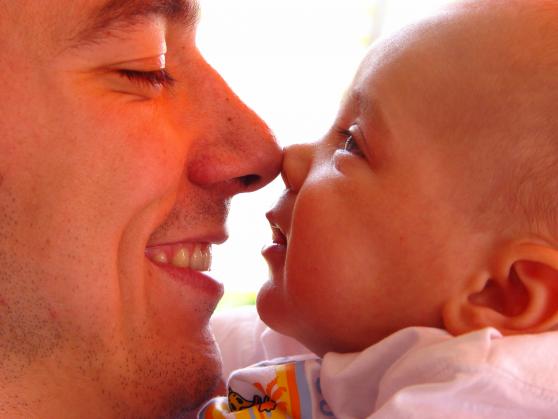
Interaction is necessary for language and communication skills to develop. A baby has the opportunity to enter into interaction with other people from the moment he or she is born. At first touch, look and sound are sufficient. Do not stop speaking to the baby after he or she is diagnosed with hearing impairment. Even children with severe hearing loss can sense sound on their body, but the importance of look and touch are emphasized. When a grownup reacts to a child’s wordless messages, the child enjoys the interaction.
As the baby grows, worldess communication becomes increasinly important. With a hearing impaired child, special attention should be paid to the development of communication. If the child’s hearing rehabilitation hasn’t begun or is in a very early stage, various communication methods that support speech or sign language guarantee that the preconditions for sommunicating exist regardless of the listening environment or situation. As speech develops, visual aids used for communication become less important. If a child has severe hearing loss, they may still be needed in stuations where hearing is hard or impossible. Sign language may stay in the child’s life as a kind of second language, if so desires.
The speech therapist at the hospital hearing centre will cooperate with the in defining what kind of support the child needs for the development of his of her communicaiton skills and language. If necessary, speeech therapy and/or communication training will be made available to the child. Naturally, everyday life at home plays the most important role. Find out here, how to communicate with a deaf or hard of hearing child.




